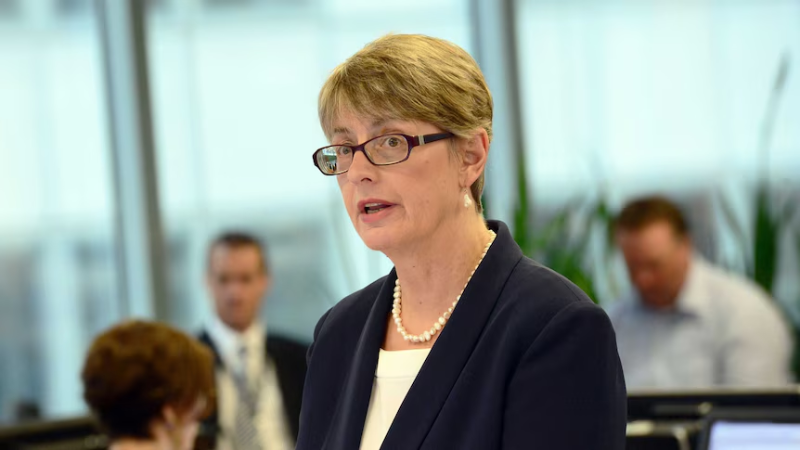NACC Inspector Gail Furness is giving the Commission a chance to save its reputation. But will that, too, be squandered in secrecy, Paul Begley asks?
In February 2024, the National Anti-Corruption Commission (NACC) entered into a Memorandum of Understanding (MoU) with the NACC Inspector. The Inspector’s role is to oversee the work of the NACC and investigate complaints about its decisions. The most public of those complaints was when the NACC later decided not to pursue any of the referrals it had received in relation to the Robodebt scandal.
In March this year, the MoU was updated, as announced in the most recent monthly update from NACC.
Under the heading ‘Background’, the updated MoU offers no explicit reason for revising the original memorandum. MOU. The three background points under the heading, however, include the assertion that “the Commission intends to co-operate fully, frankly and proactively with the Inspector and persons assisting the Inspector in order to facilitate the performance of the Inspector’s functions under the Act”.
While that is an admirable undertaking, it raises the question of whether cooperation with the Inspector’s office by the Commission was less than full, frank, and proactive during the period from February 2024 to March 2025.
Deafening silence at flawed process. NACC and the Robodebt investigation.
There is also no explicit reference to what events prompted the revised MoU or which agency pressed for it to be revised. But there may well have been questions raised about the adequacy of the Commission’s readiness to facilitate the Inspector’s requests for referrals, information and points of contact, in particular given the pressure related to the Robodebt Royal Commission referral.
Robodebt referrals revisited
One of the actions taken during that period was to appoint an eminent Australian, Geoffrey Nettle AC KC, to revisit the decision regarding the Robodebt referrals. In the event, Mr Nettle overturned the NACC decision not to investigate the six individuals named under seal by the Robodebt Commissioner, Catherine Holmes, and called for the decision to be revisited.
Mr Nettle also stipulated that the deputy commissioners involved in the original decision were not to participate in the revived investigation.
That direction should have meant that Deputy Commissioners Ms Nicole Rose, Ms Kylie Kilgour and Dr Ben Gauntlett would be ineligible to participate in the revived investigation because they had all been involved in drafting the announcement not to proceed with the investigations.
However, it was revealed on the NACC July update that, despite Nettle’s stipulation, Kilgour is now charged with leading the investigation, to which Nettle himself is assigned the role of Adviser.
Public hearing in the offing?
Under the heading ‘Notification of Exercise of Powers’, the MoU stipulates that “where the Commissioner decides to hold a public hearing in accordance with section 73(2) of the Act, the Commission will provide to the Inspector the reasons for that decision as soon as reasonably practicable after the decision has been made”.
To date, there has been no announcement that the Kilgour-led investigation will hold public hearings. Given that the series of events since 6 June 2024 has called into question the integrity of the NACC, the transparency of its processes, and its legitimacy as an anti-corruption body, by any reasonable measure,
the ‘exceptional circumstances’ condition for holding public hearings would appear to be acutely present.
Under the circumstances that currently exist in relation to this matter, were the re-investigation to proceed in secret, the NACC would risk presenting itself as stubborn at best, recalcitrant at worst, and the Office of the NACC Inspector would suffer from the perception that its deliberations could be swept aside with scant regard.
Such an outcome would confirm the already widespread perception that the NACC appears to be
more concerned to protect the wrongdoers than to expose the wrongdoing,
as Geoffrey Watson SC, from the Centre for Public Integrity, put it.
Under the circumstances, there are sound reasons to suggest that it is incumbent on the leadership of the NACC and the Office of the NACC Inspector to be more adventurous in the exercise of their respective powers, one of which is to reassure the public that corruption by public officials is not being hidden from them by the very bodies entrusted to uphold integrity.
Although the NACC Inspector cannot compel the NACC to hold a public hearing, the Inspector might find a way to proactively suggest to the deputy commissioner that it is in the public interest, as well as the belated interest of the NACC itself, to demonstrate that transparency is a value it upholds.
In a recent podcast promoted by NACC, Professor of Public Policy and Law at Griffith University, A J Brown, made the uncontested point that
if the general public thinks there is a problem with corruption there is a problem with corruption,
even where the public overestimates the actual incidence of corruption.
If that observation has any validity, it is in all our interests that transparency prevails in the NACC’s chance to save its reputation, a chance the Inspector’s office has given it.
Corruption Commission’s Robodebt failure tells of deeper problems with the NACC
Paul Begley worked in public affairs roles for three decades, most recently as general manager of government and media relations with the Australian HR Institute.

